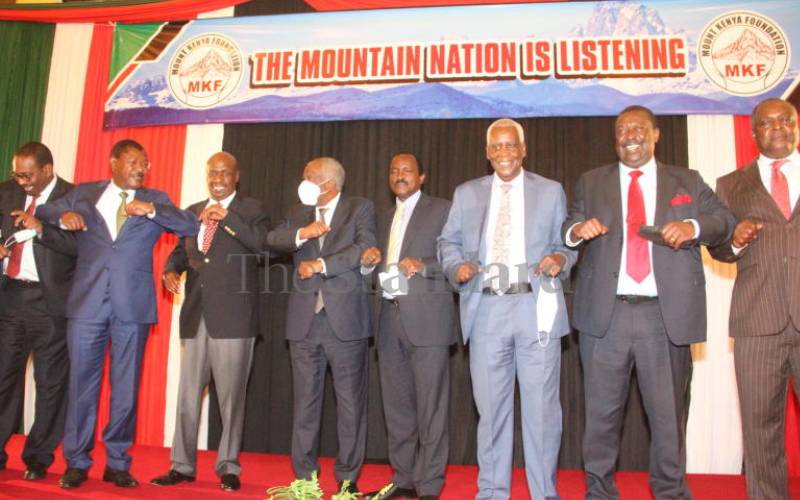×
The Standard e-Paper
Fearless, Trusted News

OKA chiefs - Kalonzo Musyoka (Wiper), Gideon Moi (Kanu), Musalia Mudavadi (ANC) and Moses Wetang’ula (Ford-Kenya) with Mt Kenya Foundation (MKF) team. [Edward Kiplimo,Standard]
The race for State House is becoming more dizzying for top contenders as they grapple with the challenge of securing a stake in the vote-rich Mt Kenya region.